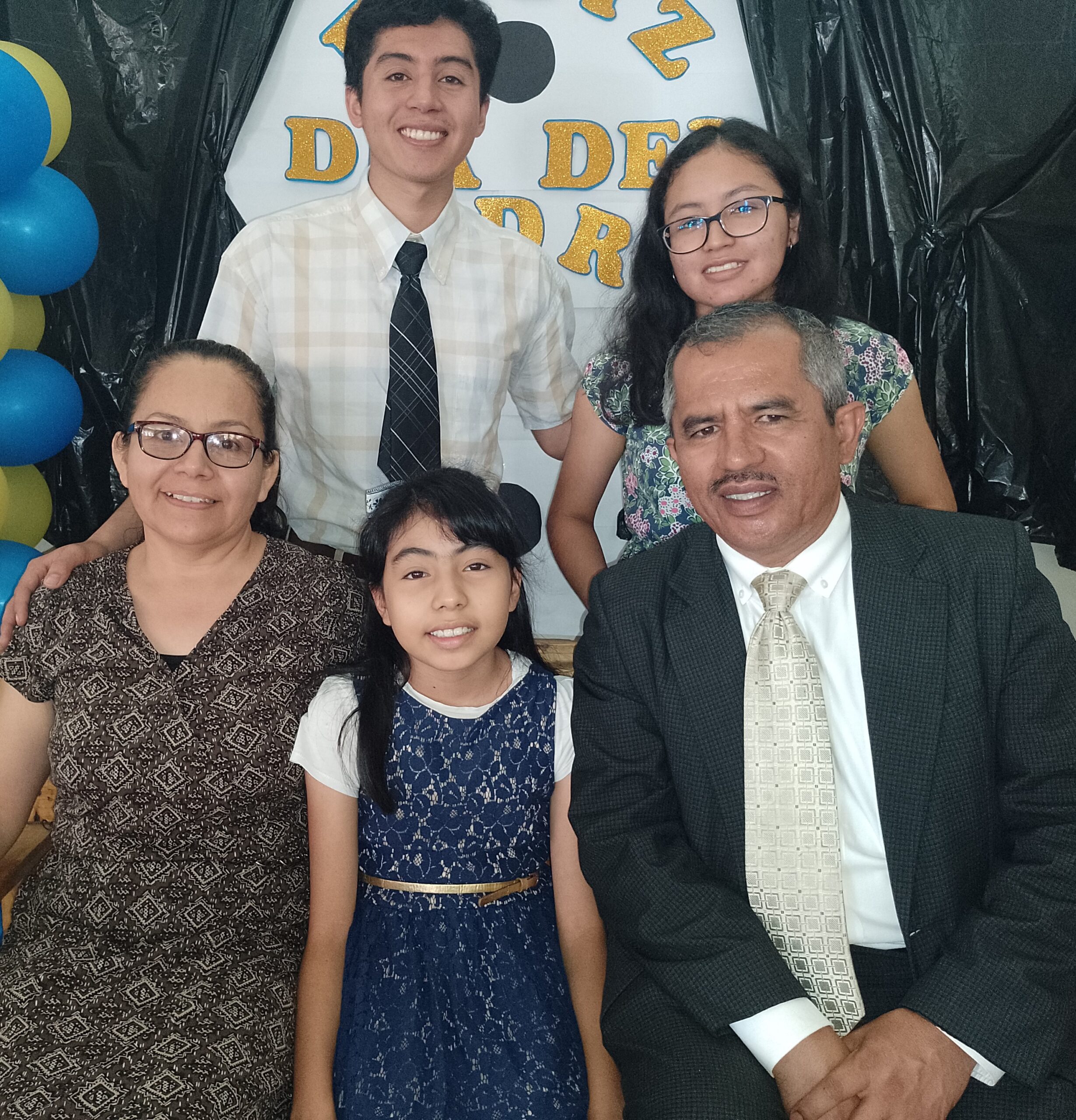About The Missionary
Giovanni Avendaño was born in Guatemala, Central America. He was saved in 1990, under the ministry of Pastor Jose Talavera in California. After being saved, the Lord placed a great thirst in Giovanni to learn more about Him which led him to attend a Bible institute for three years. Following this, he studied at Puerto Rico Baptist College, graduating in 2000 with a Bachelor of Theology degree. In that same year, he and Barbara were married. Giovanni has stated, “I praise God for my wife because she is a godly and wonderful woman.” The Lord has
blessed them with three beautiful children.
God has prepared Giovanni Avendaño to reach the parts of the country of Guatemala that do not have a Baptist church. In August 2003, the Avendaño family arrived in Guatemala to begin a church planting ministry. At first the church met in their home but with the help of the Lord, and thru the great sacrifice of many believers, in 2008 the New Life Baptist Church building was completed and they have an attendance of about 100. They also have dynamic men’s, ladies’ and youth programs, as well as radio and Bible institute ministries. They lead a Christian school, the Ebenezer Baptist School Complex, with 500 students.
Giovanni has been serving as the Latin American Regional Director since 2015. While he faithfully oversees the ministry in Guatemala, he also travels to visit the other IPM Latin American missionaries located there. Please pray that the Lord will continue to use him in this area of the world.
Latest Prayer Letter
Project Giving Opportunities
Sorry, there are no projects at this time.
Updates From The Field
Sorry, there are no updates at this time.
About The Field:
Guatemala City, the capital of Guatemala, grapples with a range of economic complexities and social challenges that significantly impact its residents.
Economically, Guatemala City serves as the country’s economic hub, with a diverse yet unequal economy. While the city boasts sectors like manufacturing, services, and agriculture (particularly in coffee and bananas), it faces challenges such as income inequality, a high informal labor market, and reliance on traditional industries vulnerable to external market fluctuations.
Social challenges in Guatemala City are diverse and impactful. Access to quality education remains a concern, with disparities in educational infrastructure and resources, especially in marginalized urban areas and rural regions. Healthcare accessibility and affordability pose challenges, leading to disparities in health outcomes, particularly for those in impoverished communities.
Poverty affects a significant portion of the population in Guatemala City, contributing to social disparities and impacting living standards for many residents, especially indigenous and rural populations who face higher poverty rates.
Crime and violence pose significant challenges, with Guatemala City experiencing high crime rates, including gang-related violence and issues related to citizen safety, affecting community stability and economic development.
Environmental sustainability is a concern, with challenges related to deforestation, pollution, and natural disasters, impacting ecosystems and livelihoods, particularly for vulnerable communities.
Issues related to governance, corruption, and political stability influence social dynamics and public trust in institutions, contributing to societal challenges and complexities.
Balancing economic growth with social development remains a challenge for Guatemala City, as it navigates these multifaceted issues, striving for inclusive growth and improved well-being for all its inhabitants.
